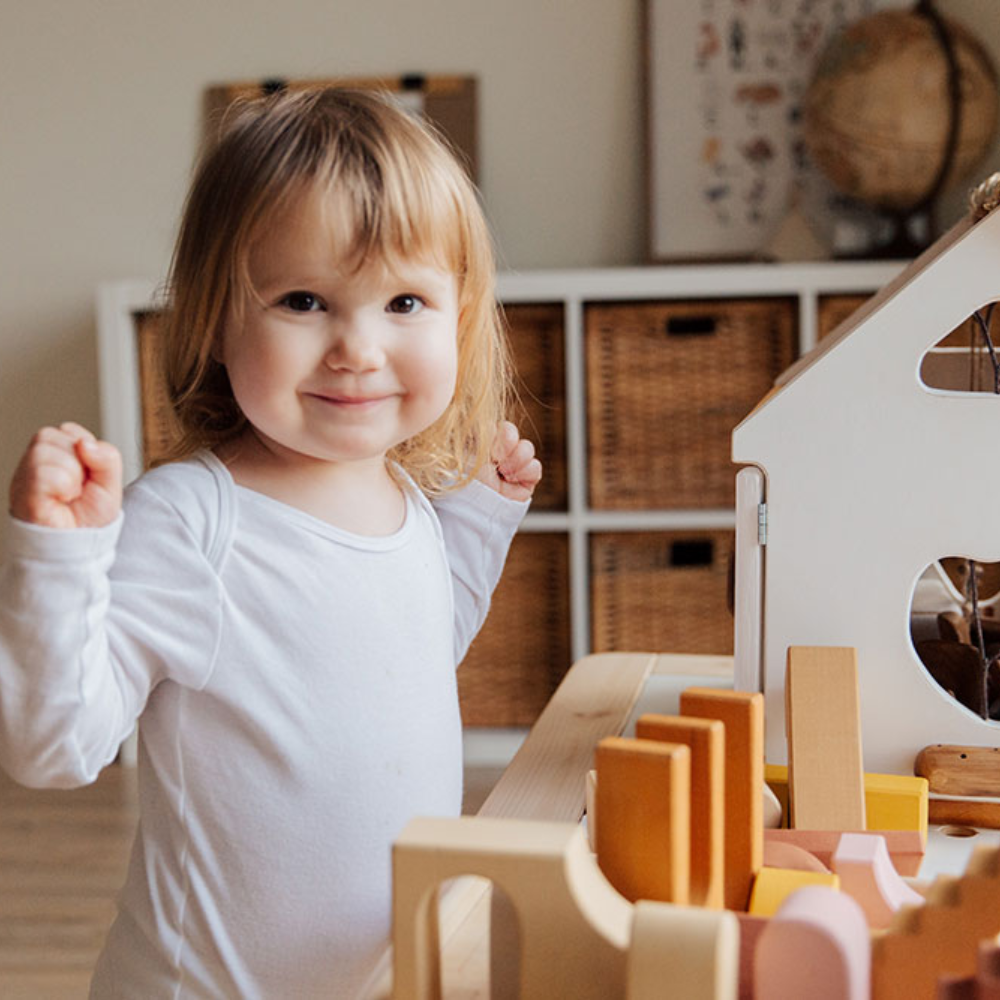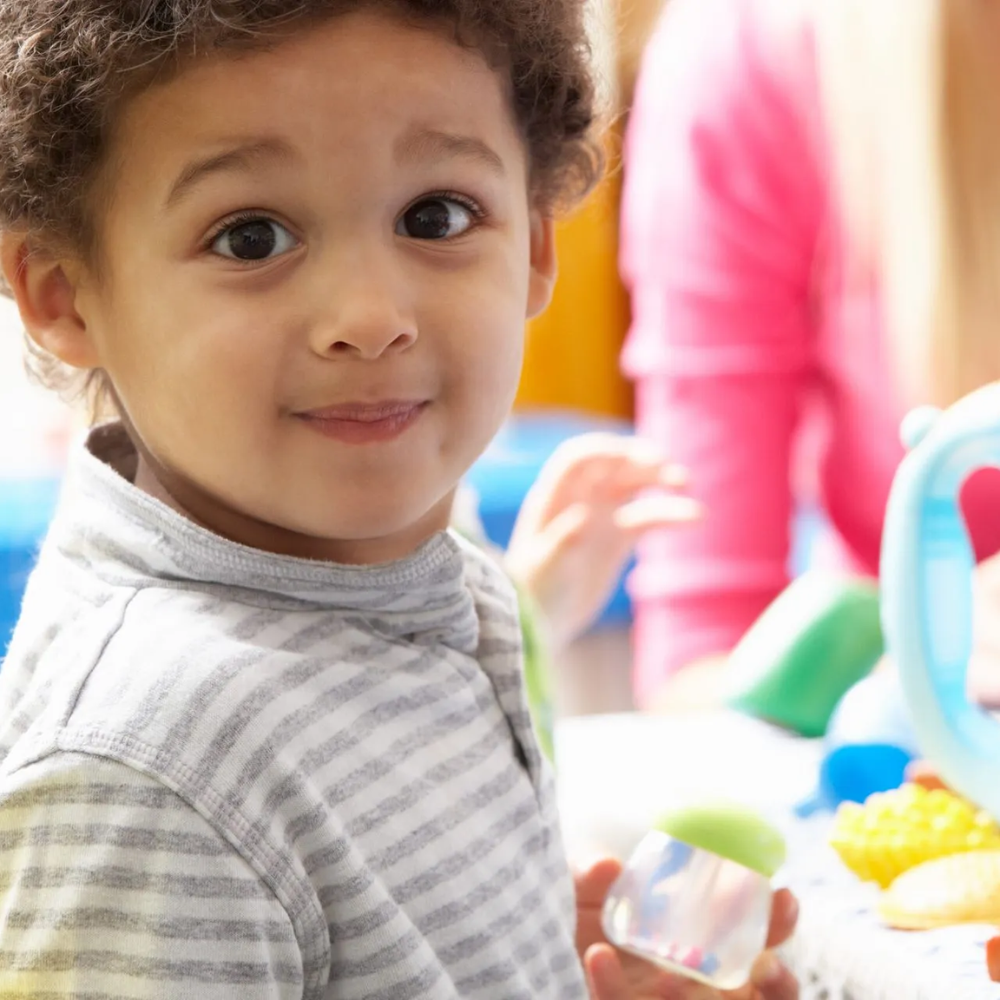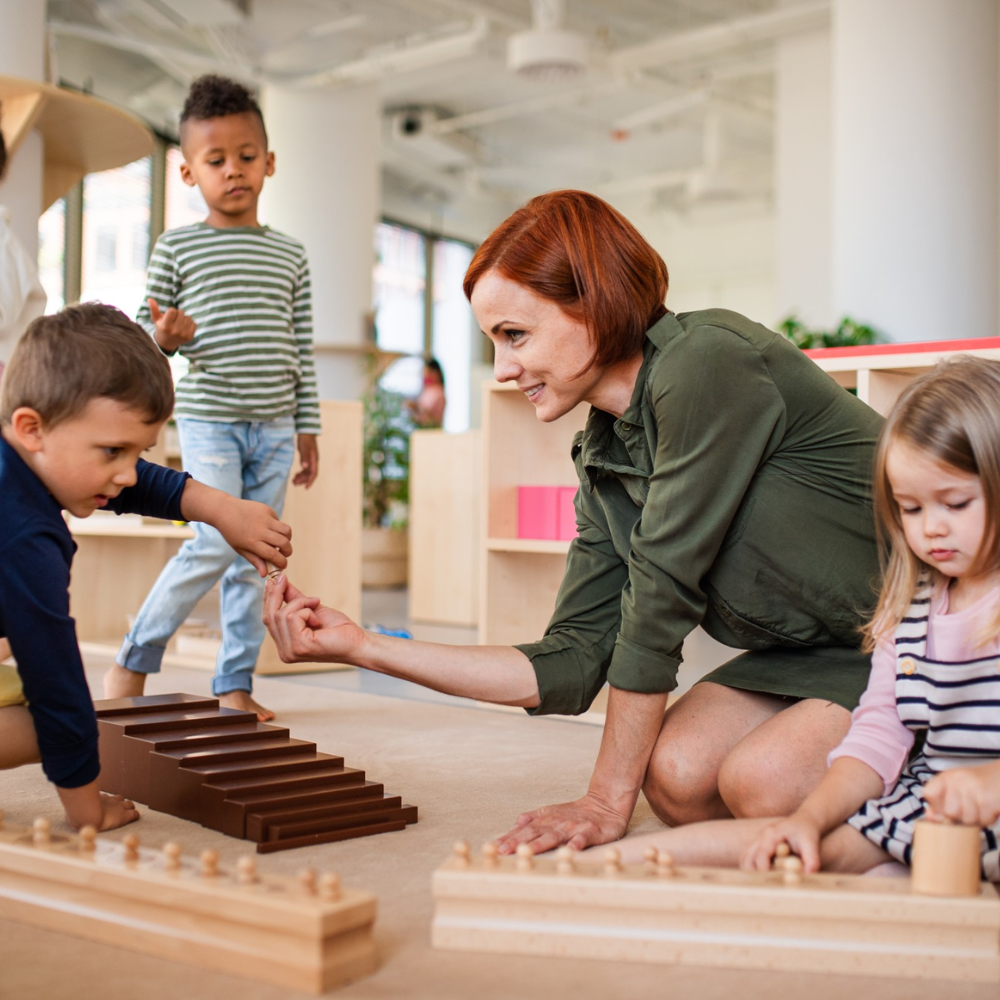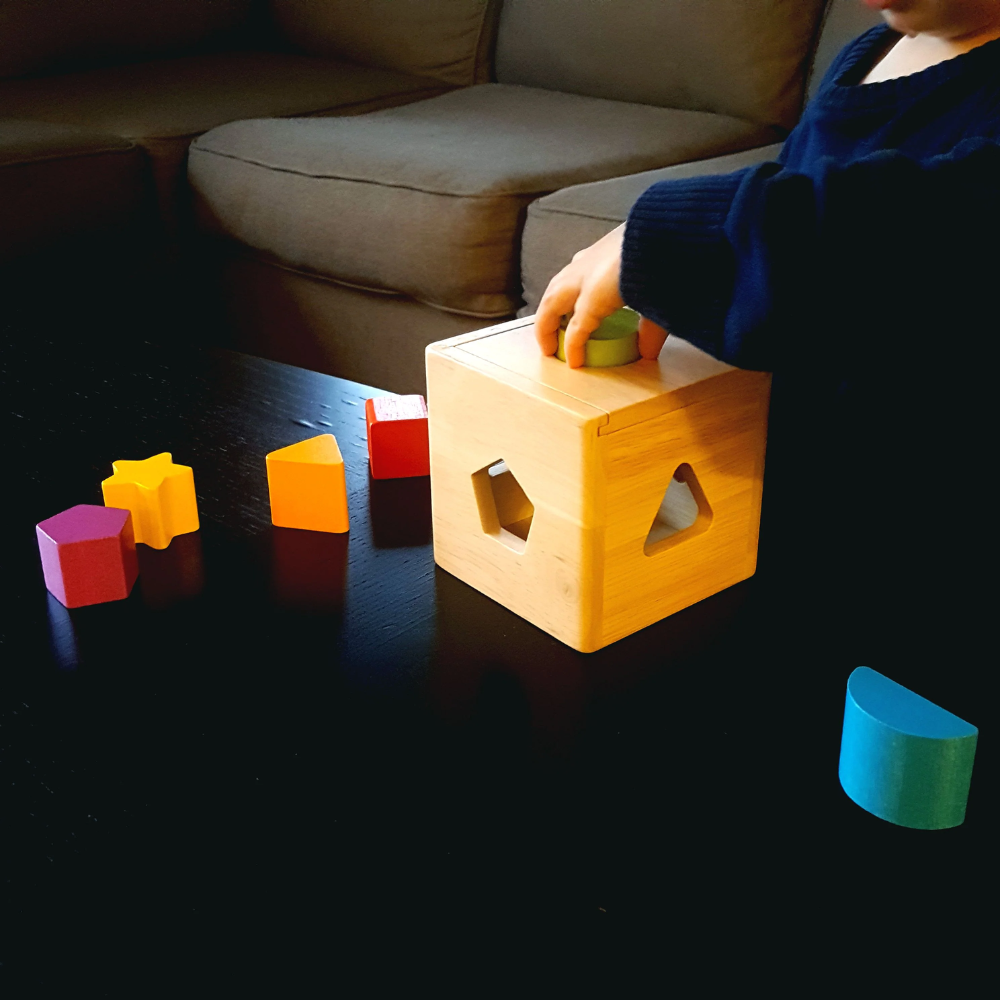Montessori toys have gained popularity in recent years due to their ability to promote early learning and development in children. These educational toys are based on the Montessori method, which was developed by Dr. Maria Montessori in Italy in the early 1900s.
The Montessori method emphasizes hands-on learning through play and exploration, rather than traditional teaching methods such as rote memorization or instruction. This approach allows children to develop their cognitive, social, and motor skills at their own pace, while also promoting independence and creativity.
In this article, we will discuss why Montessori toys are key to early learning success and how they differ from traditional toys. We will also explore the benefits of incorporating Montessori principles into your child's playtime and provide tips on choosing the best Montessori toys for your child.
The Importance of Early Learning
Early learning is a crucial stage in a child's development, as it sets the foundation for future academic and social success. Children's brains rapidly develop during the first few years of life, and they are more receptive to new information and experiences.
Studies have shown that early childhood education can significantly impact a child's cognitive abilities, language skills, emotional well-being, and even future earning potential. This is why investing in toys that promote early learning is essential for your child's overall development.
Plus, early learning is not just about preparing children for academic success; it also helps them develop crucial life skills such as problem-solving, critical thinking, and communication. These skills are essential for navigating the world and building successful relationships in the future.
Reasons to Choose Montessori Toys

There are various types of educational toys available in the market, but Montessori toys stand out for several reasons. These include:
Hands-on Learning
Hands-on learning is a cornerstone of the Montessori method, encouraging children to engage directly with their environment and manipulate materials to understand concepts. Montessori toys are designed to be tactile and interactive, allowing children to learn through doing rather than passively observing.
This approach enhances sensory development and strengthens neural connections in the brain, fostering better retention of information. For example, a simple bead maze can teach counting, sequencing, and fine motor skills simultaneously.
The tactile experience helps children grasp abstract concepts more concretely. Moreover, hands-on learning promotes active exploration and curiosity, essential components of a lifelong love of learning.
Promotes Independence
Montessori toys also promote independence and self-directed learning. Unlike traditional toys that often have a set outcome or specific instructions, Montessori toys are designed to be open-ended, allowing children to explore and discover on their own. This encourages them to think for themselves and develop problem-solving skills.
For instance, wooden blocks can be used in various ways, from building towers to creating patterns and even for counting. Children have the freedom to use the blocks as they see fit, rather than following a step-by-step guide. This fosters creativity and innovation while empowering children to take ownership of their learning.
Encourages Creativity
Another notable aspect of Montessori toys is that they encourage creativity. These toys are designed to be simple and natural, allowing children's imagination to take the lead. They do not have loud sounds, flashy lights, or preset functions that limit a child's playtime.
For example, a set of wooden animal figurines allows children to create their own imaginative scenarios and stories rather than being told how to play with them. This nurtures creative thinking and self-expression in children while providing endless possibilities for exploration and discovery.
Plus, by not providing a set outcome or solution, Montessori toys promote divergent thinking and problem-solving skills in children. This is an essential skill for future success in various fields and industries.
Develops Motor Skills
Montessori toys are also beneficial for developing motor skills in young children. The use of specialized materials, such as puzzles, threading beads, or sorting games, helps refine fine motor skills and hand-eye coordination.
Moreover, the open-ended nature of these toys allows children to explore different ways of manipulating objects, which strengthens their gross motor skills. For example, using stacking blocks to build different structures helps develop hand and arm muscles, essential for future tasks such as writing.
Plus, the multi-sensory experience of playing with Montessori toys also aids in the development of spatial awareness and hand dexterity. These skills are crucial for everyday tasks such as tying shoelaces, using utensils, and even typing on a keyboard.
Child-led Approach
Lastly, the child-led approach of Montessori toys is what sets them apart from traditional toys. Rather than being directed by adults or pre-programmed functions, these toys allow children to take the lead and follow their interests.
This approach respects a child's individual learning style and pace, promoting a positive relationship with learning and fostering a love for discovery and exploration. It also helps build confidence and self-esteem as children gain a sense of control over their playtime.
Choosing the Best Montessori Toys for Your Child

When selecting Montessori toys for your child, it's important to consider their age, interests, and developmental stage. Look for toys that are simple, open-ended, and made from natural materials such as wood or cloth.
Additionally, choose toys that promote a variety of skills and concepts rather than focusing on one specific aspect. This allows children to engage in different types of play and learn from multiple perspectives.
It's also beneficial to involve your child in the selection process, allowing them to choose from a few options that align with their interests. This further promotes independence and helps nurture their decision-making skills.
Ultimately, the best Montessori toys are those that encourage hands-on learning, promote independence and creativity, develop motor skills, and follow a child-led approach. By providing your child with these types of toys, you are not only supporting their development but also nurturing a love for learning that will benefit them in the long run.
How to Incorporate Montessori Toys in Your Child's Playtime

To incorporate Montessori toys into your child's playtime, set up a designated area or shelf with a variety of materials for them to explore. This can include puzzles, sorting games, building blocks, and sensory activities such as pouring and scooping.
Rotate the toys regularly to keep things interesting and introduce new concepts. Observe your child's interests and offer guidance when necessary, but allow them to lead the playtime and follow their own curiosity.
Additionally, create opportunities for your child to engage in real-life tasks such as washing dishes, sorting laundry, or setting the table. These practical life activities are an integral part of the Montessori method and help children develop important life skills.
Remember to also limit screen time and provide plenty of opportunities for your child to play and explore in a hands-on manner. By incorporating Montessori toys into your child's playtime, you are not only supporting their development but also nurturing their natural desire for learning and discovery.
Does Your Child Need Montessori Toys?
While there are many benefits of Montessori toys, it's important to note that these toys are not a necessity for every child. Every child learns and develops at their own pace, and what may work for one child may not necessarily work for another.
If your child is already engaged in hands-on learning experiences and has access to open-ended materials, then they may not need specific Montessori toys. However, if you notice that your child lacks opportunities for self-directed play or struggles with problem-solving skills, Montessori toys can be beneficial additions to their playtime.
Ultimately, the key is to observe your child's interests and learning style and provide them with a variety of opportunities for exploration and discovery. Whether it's through Montessori toys or other materials, nurturing a love for learning and creativity in your child is essential for their development and future success.
Mistakes to Avoid When Using Montessori Toys

When incorporating Montessori toys into your child's playtime, it's important to avoid certain mistakes that can hinder their learning experience. Here are some common mistakes to avoid:
- Limiting your child's playtime with Montessori toys: It's important to provide ample opportunities for your child to engage in self-directed play with these toys. Plus, rotating the toys can keep things interesting and spark new interests.
- Giving too much direction: While it's important to guide your child when necessary, it's also crucial to allow them to lead and explore on their own. This promotes independence and builds problem-solving skills.
- Focusing on specific skills rather than overall development: Don't solely focus on one skill or concept when choosing Montessori toys for your child. Instead, choose materials that promote a variety of skills and encourage holistic development.
- Not involving your child in the selection process: As mentioned earlier, involving your child in choosing their toys promotes independence and decision-making skills. It also ensures that the toys align with their interests and developmental stage.
By avoiding these mistakes, you can ensure that your child gets the most out of their Montessori toy experience and continues to enjoy learning through play.
FAQs
How do Montessori toys support Montessori education?
Montessori toys support Montessori education by providing hands-on learning experiences that encourage exploration and discovery. These toys are designed to align with the Montessori curriculum, helping Montessori students develop critical thinking and problem-solving skills naturally and engagingly.
What makes Montessori toys unique in Montessori schools?
Montessori toys are unique in Montessori schools because they are specifically designed to facilitate self-directed learning. These toys are integral to the Montessori approach, allowing children to learn at their own pace and explore concepts through tactile and sensory experiences.
How do Montessori toys benefit children in a Montessori classroom?
In a Montessori classroom, Montessori toys benefit children by fostering independence and creativity. Montessori materials are designed to be intuitive and self-correcting, allowing Montessori-educated children to learn from their mistakes and gain confidence in their abilities.
Why are Montessori toys essential to the Montessori curriculum?
Montessori toys are essential to the Montessori curriculum because they provide concrete experiences that help children grasp abstract concepts. These toys are carefully chosen to match the developmental stages of children, ensuring that they support the educational goals set by Montessori teachers and the broader Montessori education philosophy.
How do Montessori toys enhance the learning experience for Montessori students?
Montessori toys enhance the learning experience for Montessori students by creating an engaging and interactive learning environment. These toys encourage children to explore, experiment, and discover, which helps them develop a deep understanding of the concepts they are learning in the Montessori classroom.
What role do Montessori toys play in creating an effective Montessori environment?
Montessori toys play a crucial role in creating an effective Montessori environment by providing the tools necessary for children to engage in independent learning. These toys help create a structured yet flexible learning space where children feel empowered to explore and learn at their own pace.
How do Montessori teachers utilize Montessori toys to help children learn?
Montessori teachers utilize Montessori toys to help children learn by integrating them into daily lessons and activities. These toys are used to introduce new concepts, reinforce learning, and provide hands-on practice. The use of Montessori materials allows teachers to tailor their instruction to meet the individual needs of each child, supporting their unique learning journey.
Conclusion
Montessori toys are a valuable addition to any child's playtime, promoting independence, creativity, and hands-on learning. By choosing the right toys and incorporating them into your child's playtime, you can support their overall development and nurture a love for learning.
Remember to consider your child's age, interests, and developmental stage when selecting Montessori toys. Also, involve your child in the selection process and provide ample opportunities for self-directed play with these materials.
Keep in mind that every child is unique and may not necessarily need specific Montessori toys. However, by observing your child's interests and learning style, you can determine if these toys will benefit their development. So, choose wisely and watch your child thrive with Montessori toys!
Subscribe to our email newsletter and unlock access to members-only content and exclusive updates.

Comments